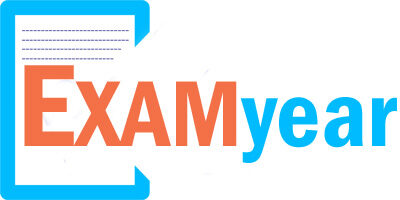Number System Questions and Answers for Quantitative Aptitude Preparation
Number System Questions and Answers Papers pdf in Quantitative Aptitude is available here for download. Therefore, all the contenders can make use of this chance and start to download the Number System Questions Solved Papers.

Because by solving the Number System Aptitude Questions Model Papers you can improve your Quantitative Aptitude knowledge. So, you start preparing on the Sample Papers from now itself.
Also, check for download the Number System Questions and Answers Papers with Solutions from the link provided below as soon as it is released by the Number System Questions for SSC. The Number System Questions for CDS Solved Question Papers helps you to prepare well for the exam topic wise and obtain very good marks.
Therefore, go through this post thoroughly and download the Number System Questions and Answers Papers. Click on the links given below to go to particular Problems on Number System question paper pdf.
However, before starting your preparation we advise to check the complete Number System Aptitude syllabus on Quantitative Aptitude. Problems on Number System Quantitative Aptitude question paper direct download links.
Model Questions Answers Papers on Number System
1. Consider the following statements
I. The product of any three consecutive integers is divisible by 6.
II. Any integer can be expressed in one of the three forms 3k, 3k + 1, 3k + 2, where k is an integer.
Which of the above statements is/are correct?
(a) I Only
(b) II Only
(c) Both I and II
(d) Neither I nor II
2. Which one of the following is a prime number?
(a) 161
(b) 171
(c) 173
(d) 221
3. Which among the following is the largest four digit number that is divisible by 88?
(a) 9988
(b) 9966
(c) 9944
(d) 8888
4. A number when divided by 2, 3 or 5 gives remainder 1. The number is
(a) 31
(b) 47
(c) 49
(d) 53
5. The largest integer that divides product of any four consecutive integers is
(a) 4
(b) 6
(c) 12
(d) 24
6. If n is a natural number, then √n is
(a) always a natural number
(b) always a rational number
(c) always an irrational number
(d) either a natural number or an irrational number
7. ABC is a triangle and AD is perpendicular to BC. It is given that the lengths of AB, BC, CA are all rational numbers. Which one of the following is correct?
(a) AD and BD must be rational
(b) AD must be rational but BD need not be rational
(c) BD must be rational but AD need not be rational
(d) Neither AD nor BD need be rational
8. What is the number of prime factors of 30030?
(a) Four
(b) Five
(c) Six
(d) None of these
9. If three sides of a right angled triangle are integers in their lowest form, then one of its sides is always divisible by
(a) 6
(b) 5
(c) 7
(d) None of these
10. Consider the following statements
If p is a prime such that p + 2 is also a prime, then
I. p (p + 2) +1is a perfect square.
II. 12 is a divisor of p + (p +2), if p > 3.
Which of the above statements is/are correct?
(a) Only I
(b) Only II
(c) Both I and II
(d) Neither I nor II
11. When a positive integer n is divided by 5, the remainder is 2. What is the remainder when the number 3n is divided by 5?
(a) 1
(b) 2
(c) 3
(d) 4
12. Which one of the following three-digit numbers divides 9238 and 7091 with the same remainder in each case?
(a) 113
(b) 209
(c) 317
(d) 191
13. Consider the following numbers
I. 247
II. 203
Which of the above numbers is/are prime?
(a) Only I
(b) Only II
(c) Both I and II
(d) Neither I nor II
14. The number 2784936 is divisible by which one of the following numbers?
(a) 86
(b) 87
(c) 88
(d) 89
15. For a positive integer n, define d (n) : The number of positive divisors of n. What is the value of d(d(d(12)))?
(a) 1
(b) 2
(c) 4
(d) None of these
Read More Questions on Aptitude
16. The product of a rational number and an irrational number is
(a) a natural number
(b) an irrational number
(c) a composite number
(d) a rational number
17. If the 14th term of an arithmetic series is 6 and 6th term is 14, then what is the 95th term?
(a) -75
(b) 75
(c) 80
(d) -80
18. If n is a positive integer, then what is the digit in the unit place of {3}^{2n+1} + {2}^{2n+1}?
(a) 0
(b) 3
(c) 5
(d) 7
19. If k is any even positive integer, then ({k}^{2} + 2k) is
(a) divisible by 24
(b) divisible by 8 but may not be divisible by 24
(c) divisible by 4 but may not be divisible by 8
(d) divisible by 2 but may not be divisible by 4
20. What is the last digit in the expansion of {3}^{4798}?
(a) 1
(b) 3
(c) 7
(d) 9
21. What is the value of x for which x, x + 1, x + 3 are all prime numbers?
(a) 0
(b) 1
(c) 2
(d) 101
22. What can be said about the expansion of {2}^{12n} – {6}^{4n}, where n is a positive integer?
(a) Last digit is 4
(b) Last digit is 8
(c) Last digit is 2
(d) Last two digits are zero
23. Consider the following assumption and two statements
Assumption A number ABCDE is divisible by 11.
Statement I: E-D+C-B+A is divisible by 11.
Statement II: E-D+C-B+A=O
Which one of the following is correct?
(a) Only statement l can be drawn from the assumption
(b) Only statement II can be drawn from the assumption
(c) Both the statements can be drawn from the assumption
(d) Neither of the statements can be drawn from the assumption
24. A three-digit number is divisible by 11 and has its digit in the unit’s place equal to 1. The number is 297 more than the number obtained by reversing the digits. What is the number?
(a) 121
(b) 231
(c) 561
(d) 451
25. Which one of the following numbers is not a square of any natural numbers?
(a) 5041
(b) 9852
(c) 1936
(d) 6241
26. If r and s are any real numbers such that 0 ≤ s ≤ 1 and r + s = 1 then what is the maximum value of the product?
(a) 1
(b) \frac {3}{4}
(c) \frac {1}{2}
(d) \frac {1}{4}
27. The remainder on dividing given integers a and b by 7 are respectively 5 and 4. What is the remainder when ab is divided by 7?
(a) 3
(b) 4
(c) 5
(d) 6
28. When a polynomial is divided by a linear polynomial, then what is the remainder?
(a) Constant polynomial only
(b) Zero polynomial only
(c) Either constant or zero polynomial
(d) Linear polynomial



